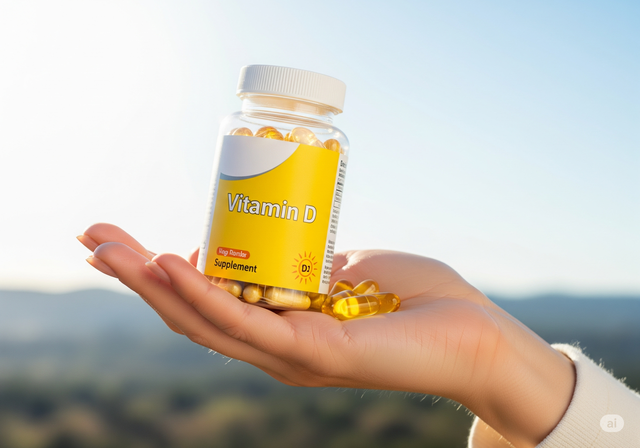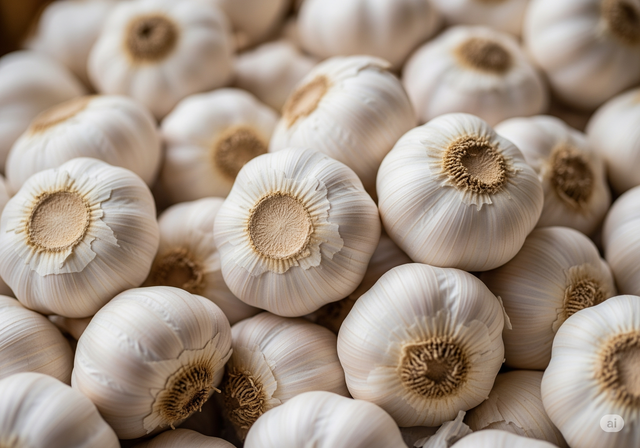Starting the day with health news , readers can also read more articles: Want to live longer, how much walking is enough?; What happens to blood pressure when you eat garlic?; Discover more good news for coffee lovers...
A familiar vitamin that helps prevent heart disease and stroke
Heart disease continues to rank as the leading cause of death. About 1 in 5 deaths are due to heart disease.
The good news is that heart disease is preventable, and scientists are constantly looking for ways to prevent it. In addition to lifestyle habits like a heart-healthy diet, regular physical activity, stress management, and adequate sleep, there are nutrients that can be especially helpful.
New research published in the journal has found that a familiar vitamin may reduce the risk of serious cardiovascular events overall.
Vitamin D supplementation may reduce the risk of serious cardiovascular events (such as heart attack, stroke) by 13-17%
Photo: AI
Researchers from the US Center for Nutrition and Health Research, the US National Institute of Cardiology, Metabolism and Endocrinology, in collaboration with experts at Queen Mary University (UK) and scientists from Poland and China, conducted a narrative review of studies related to vitamin D and heart disease.
The authors reviewed studies that used vitamin D supplements or assessed participants' vitamin D levels with blood tests.
Results found:
Vitamin D supplementation may help people with high blood lipids who are taking cholesterol-lowering drugs or who are taking heart drugs reduce their risk of serious heart events (such as heart attack, stroke) by 13-17%. The next content of this article will be on the health page on July 16 .
What happens to blood pressure when you eat garlic?
Garlic is a familiar food in daily life, not only providing a unique flavor but also health benefits, especially the ability to help lower blood pressure.
Garlic may help reduce blood pressure in people with high blood pressure, thanks to its active ingredient allicin.
Mr. Sohaib Imtiaz, a medical expert in the US, points out the benefits of garlic for blood pressure.
Allicin is a biological compound found in garlic, which can affect angiotensin converting enzyme (ACE) - a factor that constricts blood vessels and causes high blood pressure.
Garlic may help reduce blood pressure in people with high blood pressure.
Photo: AI
By inhibiting the activity of this enzyme, garlic helps blood vessels dilate and circulate better, thereby reducing blood pressure on the vessel walls.
In addition, allicin also produces antioxidant and anti-inflammatory effects, helping to protect blood vessels from damage such as sclerosis or vasculitis, while supporting blood pressure regulation function.
Consuming garlic also helps the body increase nitric oxide production, which helps dilate blood vessels naturally. This helps reduce blood flow resistance, creating conditions for more stable blood pressure.
Notably, garlic causes fewer side effects than drugs, so many people choose it as a measure to support blood pressure reduction.
However, experts advise against using garlic as an alternative treatment, especially for people with chronic diseases. The next content of this article will be on the health page on July 16 .
More good news for coffee lovers
Many people 'can't live without a cup of coffee' every day. Now, scientists have found another important reason why you shouldn't skip this favorite drink!
A new analysis just published in the International Journal of Molecular Sciences has discovered an important effect of coffee, especially black coffee without sugar, in preventing a disease that is alarmingly increasing globally.
2-3 cups of unsweetened black coffee a day reduces the risk of type 2 diabetes by 20-30% - Photo: AI
Scientists from Pukyong National University and Kyungpook National University in South Korea pooled data from 149 studies looking at the effects of coffee on metabolic processes linked to the development of type 2 diabetes. They focused on five hydroxycinnamic acids found in coffee and analyzed the effects of these polyphenols on the small intestine, pancreas, liver, muscle, and tissue.
The results found that 2-3 cups of unsweetened black coffee a day reduces the risk of type 2 diabetes by 20-30%.
Specifically, drinking black coffee daily can help regulate blood sugar levels, inhibit inflammation, increase insulin sensitivity, enhance antioxidant capacity, and improve glucose metabolism.
Notably, caffeinated and decaffeinated coffee have the same effects. Start your day with health news to see more of this article!
Source: https://thanhnien.vn/ngay-moi-voi-tin-tuc-suc-khoe-phat-hien-loai-vitamin-quen-thuoc-phong-dot-quy-185250715232527675.htm

























































































![[Infographic] In 2025, 47 products will achieve national OCOP](https://vphoto.vietnam.vn/thumb/402x226/vietnam/resource/IMAGE/2025/7/16/5d672398b0744db3ab920e05db8e5b7d)














Comment (0)